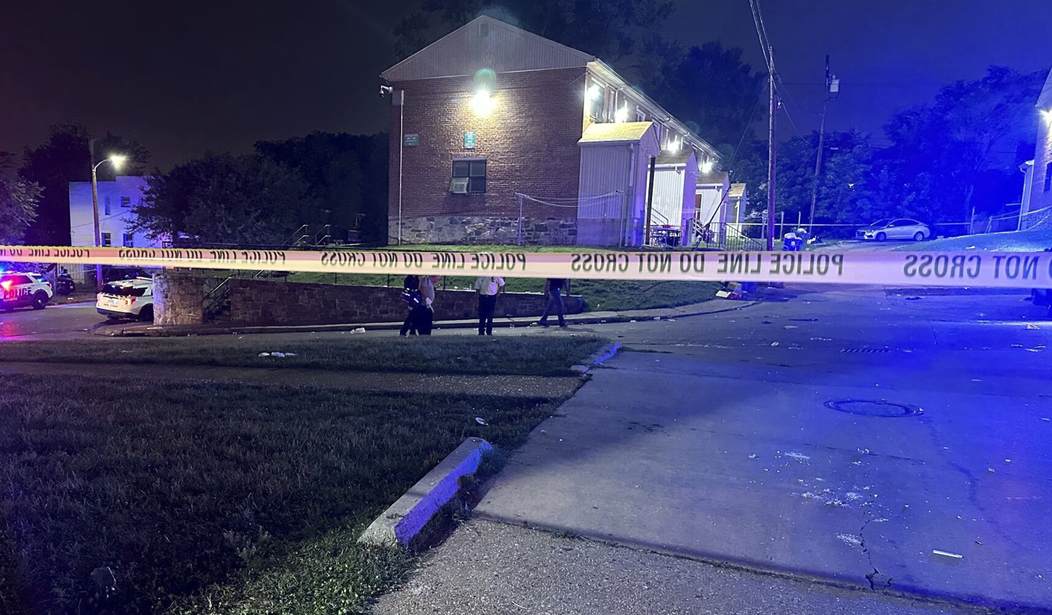Baltimore, Maryland is a city with a higher per capita murder rate than Kabul and plenty of voters and elected officials have been sounding the alarm over this recently. Juvenile crime rates over the past couple of years have been increasingly worrisome, with armed auto thefts and carjackings increasing in number. Responding to the outcry, the Maryland legislature has prepared a package of crimefighting bills to send to Democratic Governor Wes Moore. But the plan has its opponents, driven by the usual list of suspects. They assembled near the Maryland State House on Thursday to raise their complaints about the legislature "targeting youths" unfairly. One public defender addressed the crowd, claiming that the bill fails to "provide the kind of help that kids need and deserve." (Baltimore Sun)
Civil rights advocates gathered in Annapolis on Thursday afternoon to call on lawmakers to strip the legislature’s intricate juvenile justice bill of its punitive measures.
“This bill is not backed by evidence-based practices, it does not have the endorsement of a credible commission of experts, and it does not provide the kind of help that kids need and deserve,” Erin Seagears, an assistant public defender for Anne Arundel County, said. “Our kids who need our help, this bill harms them.”
The small coalition of advocates assembled at Lawyers Mall outside of the Maryland State House to ask lawmakers to strike all of the bill’s measures aside from the creation of a commission to study juvenile justice best practices. Should the legislature decline, the bill’s opposition plans to demand that Gov. Wes Moore, a Democrat, vetoes it.
You can read some of the details about the changes to the law here. Most of the changes focus on accountability and tracking. One element would make it mandatory for police officers to fill out and complete a written record each time a juvenile is taken into custody. That doesn't happen today in too many cases, so when a repeat offender is picked up, they system may not be able to identify them as such. The goal is to increase the threshold for them to be released again and identify those who are potentially more dangerous or may require intervention at home to get them out of a bad situation.
The bill would also provide $43 million for a new tracking system that would identify youths who "interact" with multiple state agencies, including law enforcement. It would also double the amount of time that juveniles can be on parole after convictions and increase penalties for those as young as ten for possession of a firearm or having stolen a car, animal abuse, or a third-degree sex offense.
All of these seem like common sense approaches to an obvious problem, but there were still loud complaints. Zakiya Sankara-Jabar, the co-founder of Racial Justice NOW!, said she was "offended" by the bill. She went on to call it “completely uncivilized.” But what are these protesters blaming for the increase in juvenile offenses including carjackings and weapons charges? Amazingly, some blamed it on the pandemic and the "mental health impacts" the government's policies had on "at-risk youths."
What's truly "uncivilized" is a society that is in decay, particularly in Baltimore. Gang activity continues to expand, with the gangs recruiting children at younger and younger ages. They are given illegal firearms and sent out to "conduct business" knowing that the city's law enforcement system is a revolving door for minors. Many come from broken or dysfunctional homes, often without a father figure in their lives. Once they've been fed through the system for a certain amount of time, most will grow to see law enforcement as "the enemy" rather than public servants assigned to keep them safe and maintain order. At that point, the only future awaiting many will involve jail or worse.
Baltimore is hardly unique in this depressing situation. We see it in other large cities as well, increasingly so since new gangs from Central and South America have set up shop after coming here as part of the migrant crisis. But Charm City remains one of the more depressing examples. It's easy to have some sympathy for young people who find themselves in hopeless conditions and get off to a bad start in life. But it's still necessary to prioritize the lives and the safety of the law-abiding over those who would engage in violence and criminal mayhem.







Join the conversation as a VIP Member